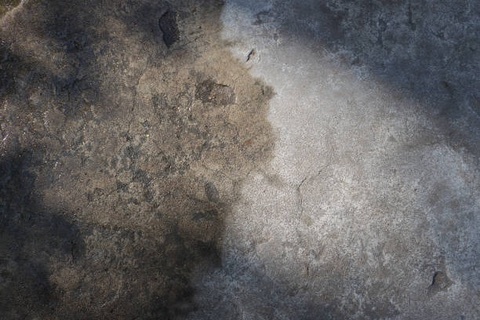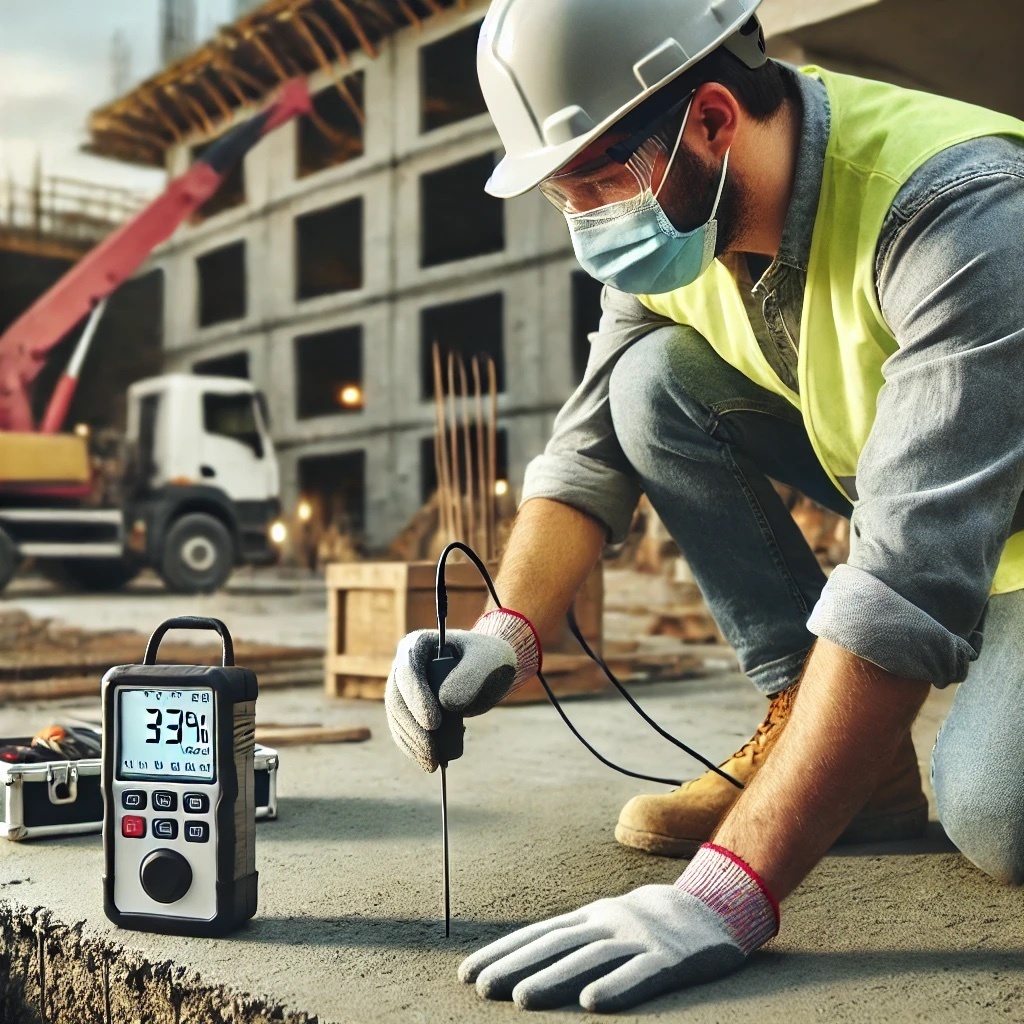Concrete Moisture Testing
The Key to Long-Lasting Flooring
Concrete moisture testing is a critical process used to determine the moisture content within concrete slabs or floors. It ensures that the concrete is dry enough for flooring installation. Without this testing, excess moisture can cause serious problems, such as:
- Flooring Adhesive Failure: High moisture levels can prevent adhesives from bonding properly, leading to flooring detachment.
- Mold and Mildew Growth: Moist environments beneath the flooring can lead to unhealthy mold and mildew growth.
- Flooring Degradation: Certain flooring materials can warp, discolor, or degrade when exposed to moisture over time, reducing their lifespan and causing expensive repairs or replacements.

Why is Concrete Moisture Testing Necessary?
Concrete naturally retains moisture after it is poured. Even if the surface appears dry, moisture from within the slab can migrate to the surface, particularly if no vapor barrier is installed or if environmental conditions change. This hidden moisture can cause severe damage to flooring materials.
Additionally, different flooring types—such as wood, laminate, or luxury vinyl—have specific moisture tolerances. For example, wood floors are highly sensitive to moisture and can warp if installed over a slab with high moisture content. Therefore, it is crucial to test the concrete moisture before any installation to avoid issues down the line.
Common Causes of Excess Moisture in Concrete
Several factors can lead to high moisture levels in concrete, including:
- Excess water in the concrete mix: Too much water during the mixing process can increase drying time.
- Environmental humidity: High humidity during the curing process can prevent moisture from escaping.
- Insufficient curing time: Concrete that hasn't cured long enough will retain more moisture.
- Missing or improperly installed vapor barriers: Vapor barriers prevent ground moisture from seeping into the slab. If missing or installed incorrectly, the slab may absorb moisture from the ground.
- Type of flooring: Some flooring materials, like hardwood and laminate, are more susceptible to moisture damage than others.
Testing Methods for Concrete Moisture
There are several methods available for concrete moisture testing. The most widely used are:
- Calcium Chloride Test (ASTM F1869): This test measures the rate of moisture vapor emissions from the surface of the concrete over a period of time. It's a common method but only assesses surface moisture, which may not reflect moisture deep within the slab.
- Relative Humidity (RH) Test (ASTM F2170): This is the method preferred by Guzi-West. It involves drilling small holes into the slab (typically 40% of the slab's thickness) and inserting sensors that measure the internal relative humidity of the concrete. Unlike surface tests, this method provides a comprehensive view of the moisture deep within the slab, which is critical since moisture can migrate upward over time. RH tests are reliable, cost-effective, and provide results within 24 hours.
- Handheld Moisture Meters: These devices are useful for quick surface moisture checks but are less accurate for in-depth readings.
Why Guzi-West Uses the RH Test
At Guzi-West, we prioritize accuracy and reliability, which is why we use the Relative Humidity (RH) Test (ASTM F2170). This method not only measures surface moisture but also captures moisture deep within the slab. Since moisture migration from within can lead to long-term flooring failures, this test gives a more complete picture of the slab's condition.
The RH test is minimally invasive. While it requires drilling small holes into the concrete, these holes are easily repaired with a concrete patch, and the structural integrity of the slab is not compromised. Furthermore, the RH test is more cost-effective than many other methods, providing a quick turnaround—results are typically available within 24 hours of probe installation.
How Guzi-West Conducts Concrete Moisture Testing
When you choose Guzi-West for your concrete moisture testing needs, our trained professionals will:
- Assess the environment and conditions to determine the best placement for testing.
- Drill small holes into the concrete to insert RH sensors (for the RH test).
- Record the internal moisture content of the slab.
- Provide a comprehensive report with detailed results and recommendations, usually within 24 hours.
Offer advice on how to proceed based on the test results, including whether it's safe to proceed with flooring installation or if additional drying time is required.
Why Choose Guzi-West?
Guzi-West brings expertise and precision to concrete moisture testing, ensuring that your floors are installed over a slab that meets the necessary moisture thresholds. Our team is certified and equipped with the latest tools to deliver reliable and fast results, helping you avoid costly flooring failures and ensuring the longevity of your investment.
Contact Guzi-West Today
If you're planning a flooring installation, protect your investment by ensuring the concrete slab beneath it is properly tested for moisture. Reach out to Guzi-West for a quote and let our team of experts provide you with the accurate and reliable testing you need!



 Statement of Work
Statement of Work